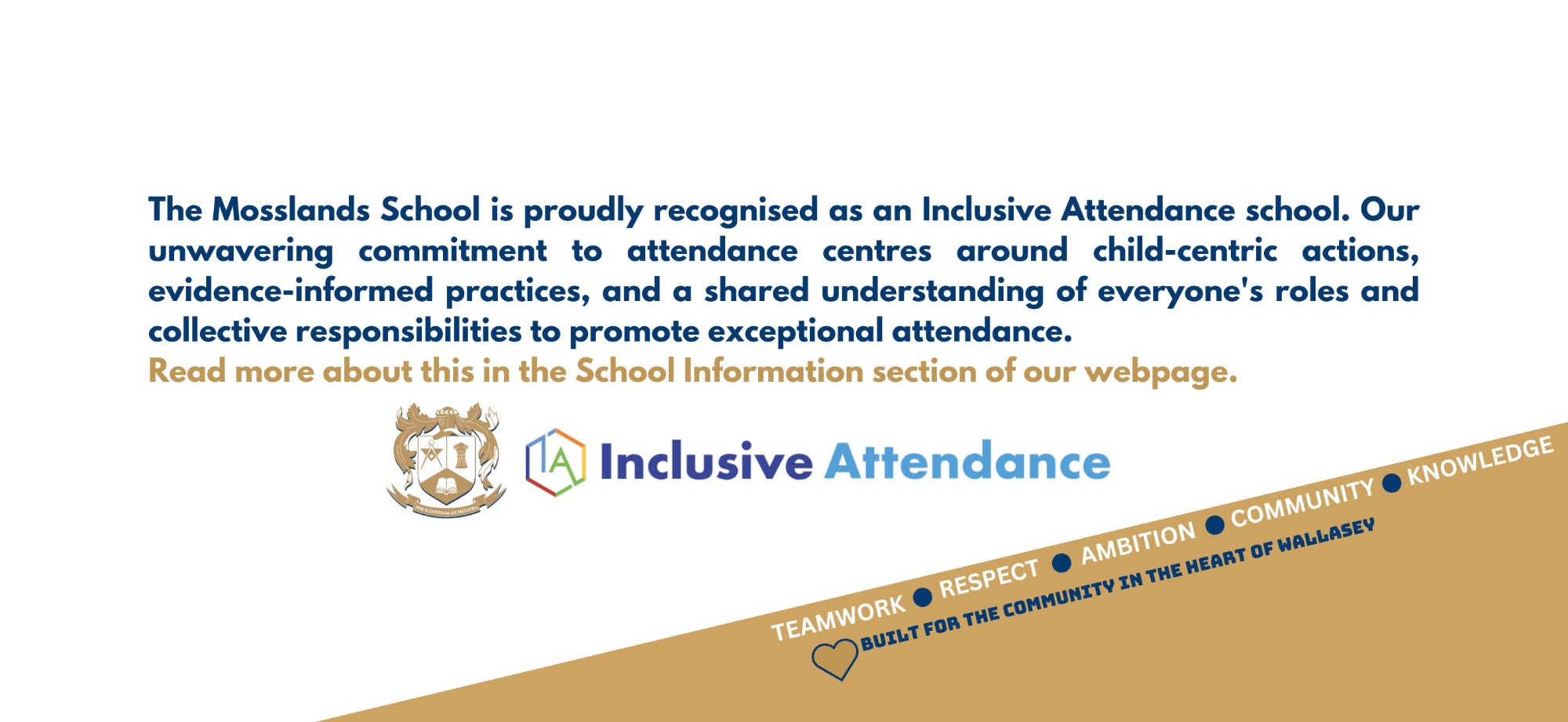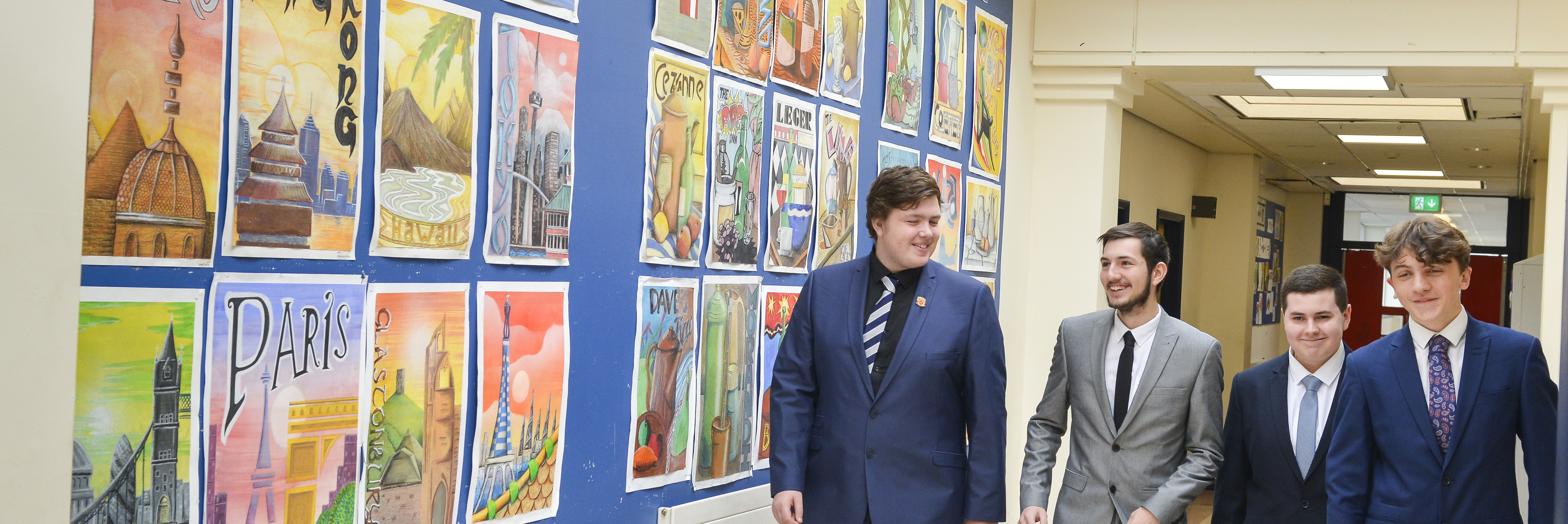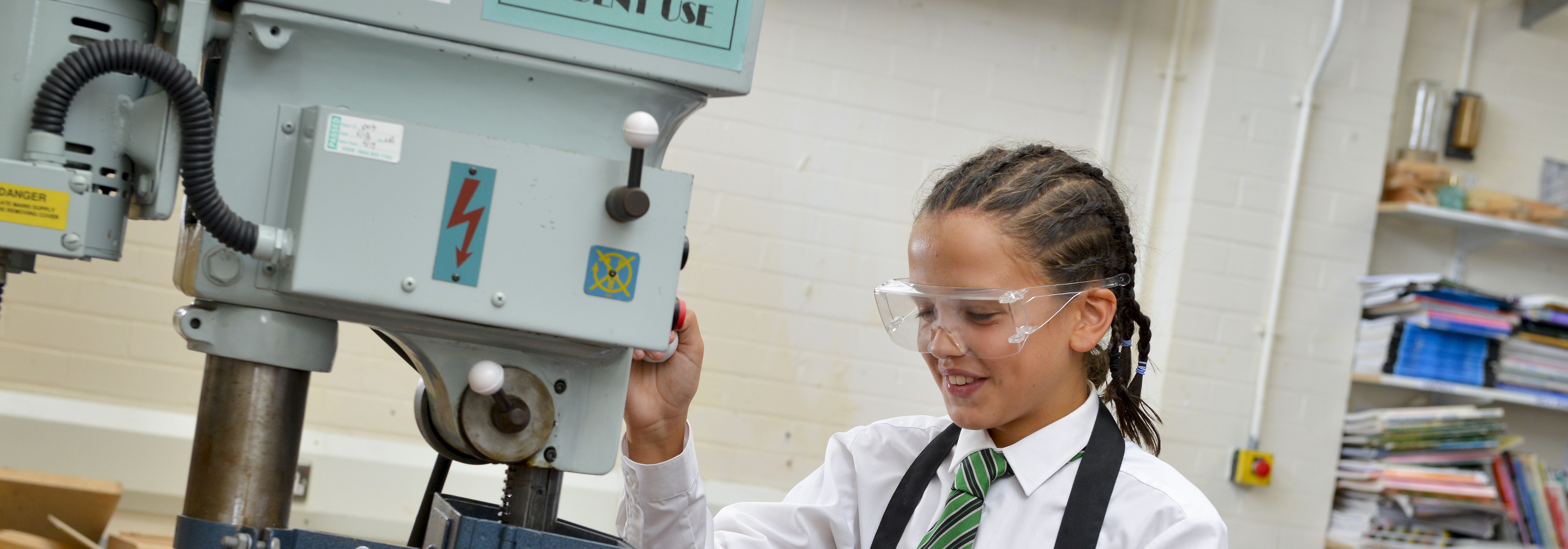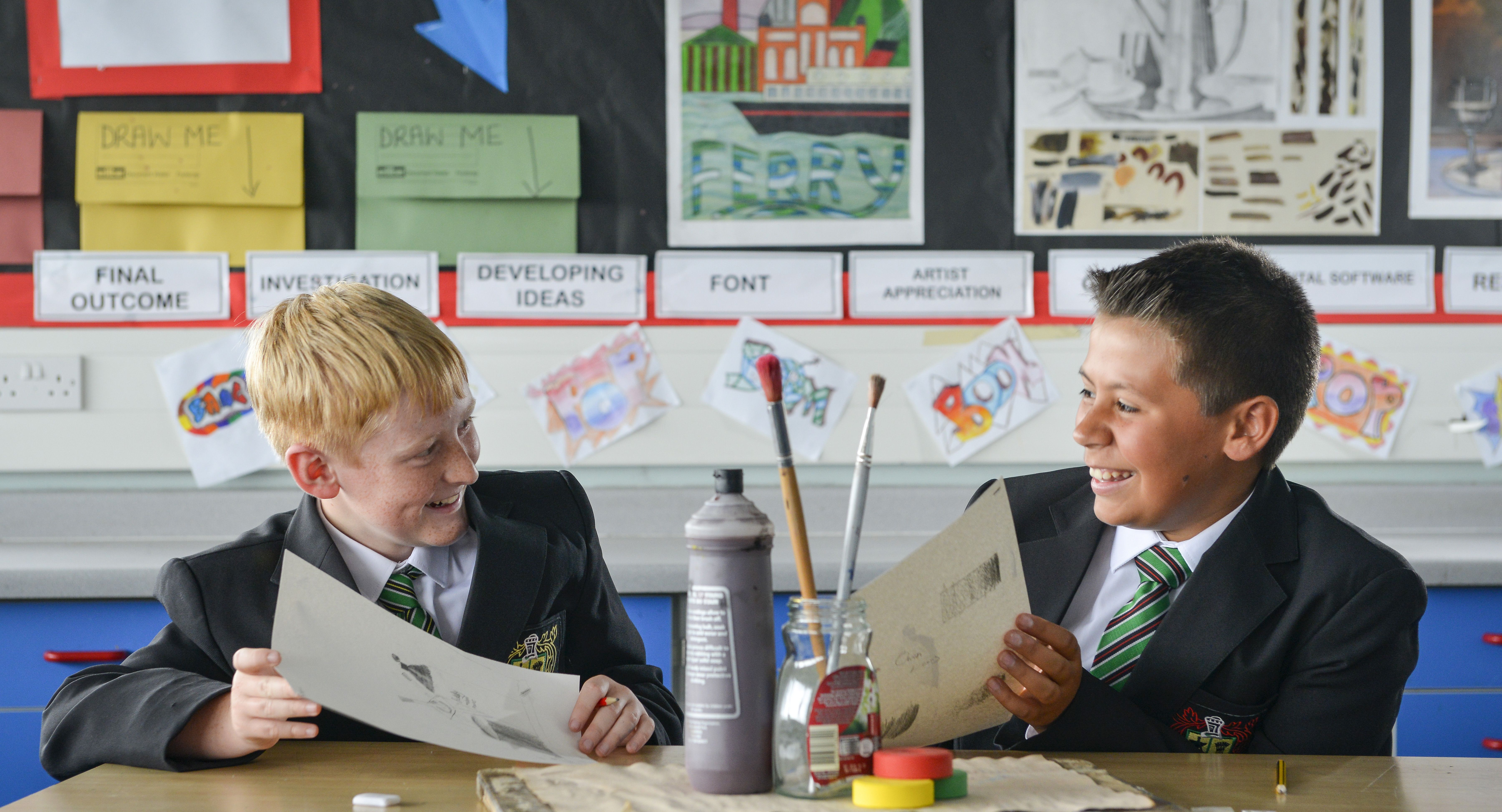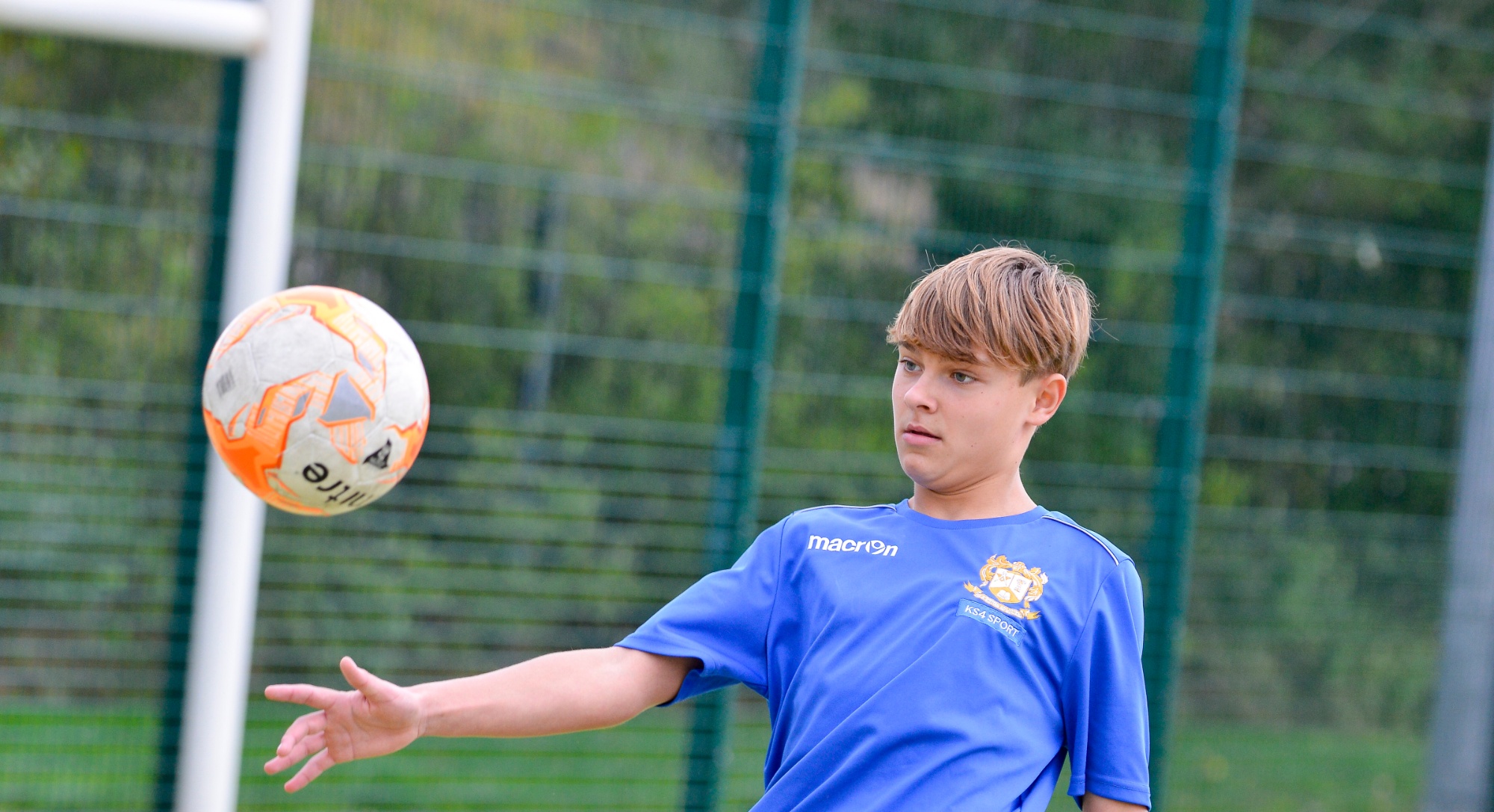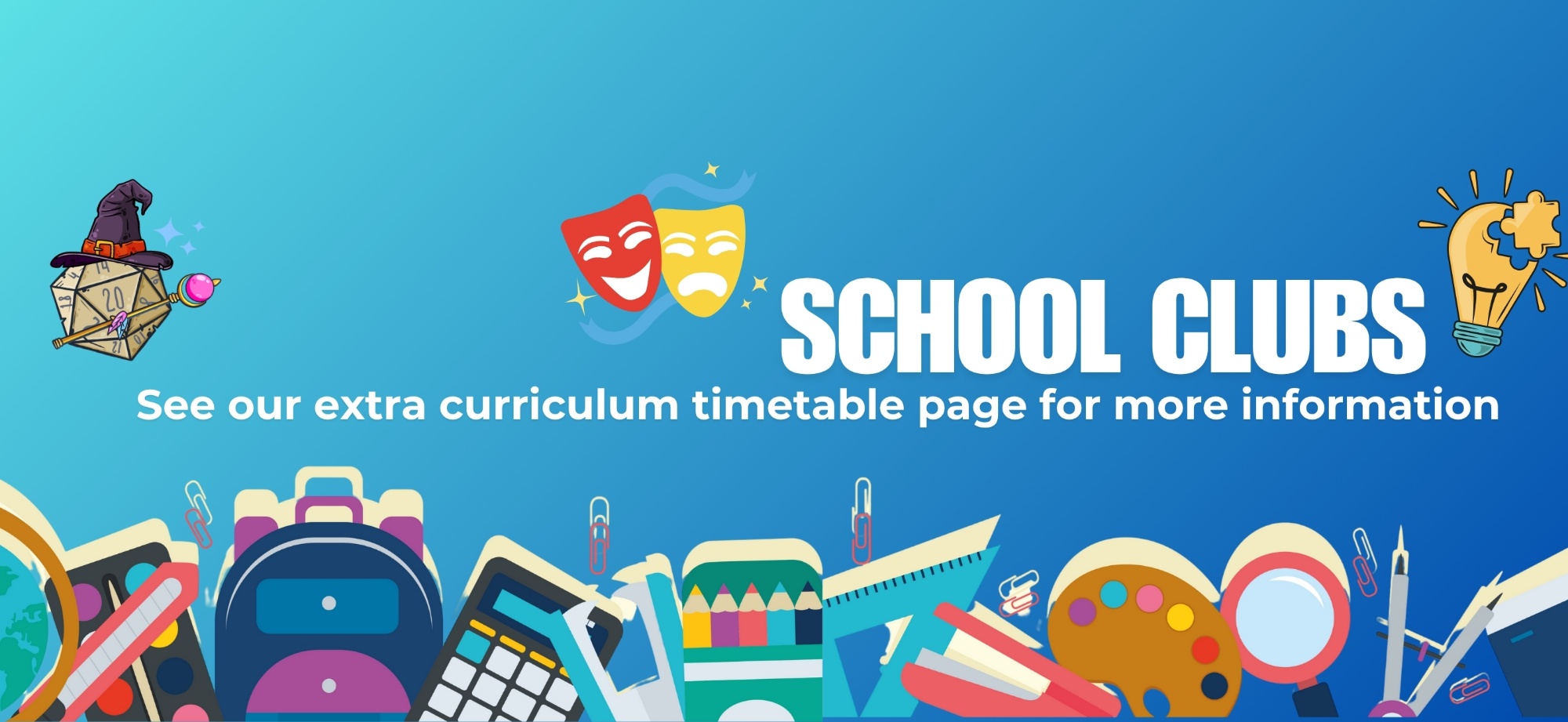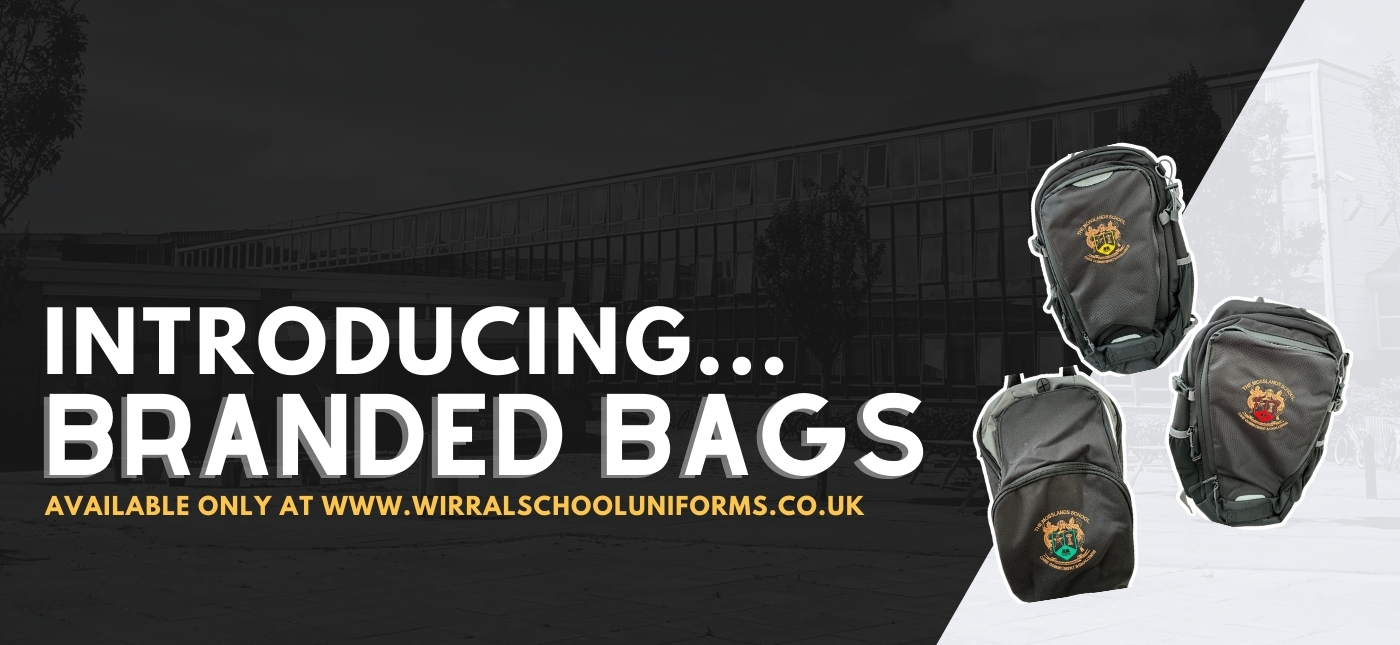Drama
Welcome to the Drama Department
Google Classroom
We have set up a Google Classroom page especially for our new Year 7. Please use the code below (case sensitive so copy and paste)
57rohme
Features of your Year 7 2020 Drama Google Classroom page:
- A message from Mrs Brett, Head of Drama
- Drama Quizzes
- Fun tasks and challenges for you to complete
- Links to free online theatre
If you have any questions about Drama at Mosslands, you can post these on our Google Classroom page and we will respond.
There will be weekly ‘Drama Streams’ which will ask you a “get to know you question”. We want to get as many of you involved, so make sure that you check in with us each week!
 The Drama Team:
The Drama Team:
Mrs Brett – Head of Drama (Left)
Miss Risley – Drama Teacher (Right)
Drama Frequently Asked Questions...
Who will teach me?
Both Mrs Brett and Miss Risley teach Year 7.
Where will my Drama lessons take place?
We have 2 Drama spaces:
The Drama Studio
 We have a “black box” Drama studio. This is a space which can be transformed to suit the needs of your lesson. It is also a performance space for exam groups. We have curtains that cover the studio to make it look professional and to block out any light. These will be used in your lessons if we are using the lighting board and the stage lights.
We have a “black box” Drama studio. This is a space which can be transformed to suit the needs of your lesson. It is also a performance space for exam groups. We have curtains that cover the studio to make it look professional and to block out any light. These will be used in your lessons if we are using the lighting board and the stage lights.
The Hall / Stage
This is a great space for our larger teaching groups as it gives you plenty of space to work, create and perform. The stage is made into a Drama teaching space by drawing the stage curtains. This then feels like a studio and ensures that your lessons do not get disrupted.
What happens in my Drama Lessons?
At the beginning of Year 7, we get to know you and get you used to working in a practical space. We  will play some team work games and give you mini challenges to test your confidence levels.
will play some team work games and give you mini challenges to test your confidence levels.
“Oh no! I am scared about performing in front of my class mates!”
Don’t be! Drama is not about you “performing” each lesson. It is about building up your group work and communication skills. We then start to teach you the core Drama techniques. You will work in groups to practise these and you may get the opportunity to “show case” your work. This is where you can show the class what you have been working on. This only happens if you want it to.
We do “whole class” performances. This is where every group will perform at the same time, and your Drama teacher will get an idea of what you have been creating and developing. The practical work will then be ‘frozen’ and groups will be showcased.
The Drama Studio are safe places where you can be experimental, use your imagination and test out new ideas.
“I want to do more Drama than just my one lesson per fortnight!”
 That’s great! We always have performance projects and events that we work towards. We would love for you to get involved!
That’s great! We always have performance projects and events that we work towards. We would love for you to get involved!
We have taken part in the Shakespeare’s School’s Festival and performance work at the Floral Pavilion. Take a look at our Drama photos!
“I don’t like Drama. Do I have to take part in the lesson?”
You can’t say that you don’t like Drama until you have been in one of our lessons! I guarantee that we will change your mind!
If you do feel uncomfortable with the performance elements, you can still work with a group in a supportive role, ensuring that they hit the top performance criteria on the assessment sheets. You will also support the teacher in peer evaluations; you will be an extra set of eyes!
We can also train you up as lighting support technicians and directors! There are many roles under the title of “Drama” for you to explore.
What ‘topics’ will I be doing in Drama in Year 7?
You will develop your Drama Skills and Techniques whilst exploring the following:
- The Green Children: we explore prejudice.
- Where is Lulu?: A missing child story which explored family relationships, school life and the police.
- Greek Theatre: theatre history. We learn about how theatre began in a practical way, bringing to life Greek theatre skills (that we still use today!).
What are Drama techniques and skills?
In Year 7, you will develop your “Drama Toolkit”. These are skills which you use both in performance work and to explore characters, themes and situations. Here are the top ‘toolkit’ items:
- Freeze frames / still images
- Thoughts aloud
- Mime

- Conscience alley
- Physical theatre
Your performance skills list:
- Facial expressions
- Body language
- Gestures
- Eye contact
- Movement
- Use of voice
- Use of space
- Use of levels




